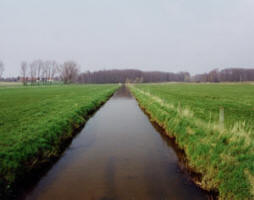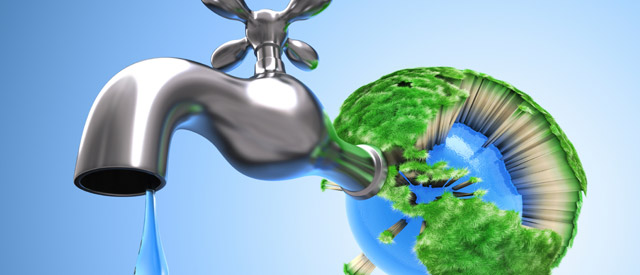 Water consumption of green energy production should be considered
Water consumption of green energy production should be considered
A recent study highlights the need to consider water consumption when evaluating low-carbon energy production systems, such as biofuels and solar photovoltaic systems, for use in transportation.
The U.S. Energy Information Administration (EIA) estimates the worldwide requirement for liquid fuels for transport will increase by 50 per cent between 2005 and 2030. For society to meet the twin challenges of combating climate change and providing energy security, developing new low-carbon energy sources for transport is essential. However, energy production consumes large quantities of water. There are concerns over future water supplies and the water consumption of alternative energy sources should be assessed before these technologies are adopted on a wide scale.
In this study, the water consumption of low-carbon energy technologies over the whole supply chain was assessed using a life cycle assessment (LCA) approach. Water consumption in this study covered water used in processes such as irrigation, mining and production, and reflects water evaporated, incorporated in products or waste, or disposed of in the sea after use.
The researchers compared the life cycle of water used to produce unleaded fuel with two main types of low-carbon energy: 1.) Biofuels, including ethanol from corn, soy biodiesel, cellulosic ethanol from the stalks and leaves of switchgrass, and biodiesel from algae (grown either in closed tubes or open ponds), and 2.) Three alternative sources of electrical energy (coal-fired power stations with carbon dioxide capture and storage (CCS); solar photovoltaic power; and concentrated solar power) to power electric vehicles and plug-in hybrid vehicles.
There were limited data and various uncertainties involved in the LCA, so a range of estimates was made and an average or ‘typical’ figure was provided for technologies with a significant difference between high and low estimates.
All but one of the low-carbon technologies consumed more water than conventional unleaded petrol production. Unleaded was calculated to consume an average figure of 0.07 gallons per vehicle mile travelled (VMT), whereas this figure was 12 gallons per VMT for irrigated switchgrass, 0.23 gallons per VMT for concentrated solar power, and 0.21 gallons per VMT for coal power with CCS, for example. Only solar photovoltaics consumed less water than unleaded. However, when vehicle manufacture is also taken into account, more water is consumed by solar photovoltaic systems owing to the water needed to produce batteries for electric vehicles. Water consumption in the biofuel options was generally higher than water used in fossil fuel and solar energy systems.
The researchers scaled up the results by considering the average demand for water and transport to see what effect this would have on overall water resources. Irrigated biofuel crops and open pond algae systems have a significant impact on water consumption, using over 1 per cent of total water demand required for energy production associated with transportation in the US at a low 10 per cent market penetration. At 50 per cent market share, these fuels consume over 10 per cent of total water demand, although soy and corn biofuels are not expected to reach this level of use due to land use restrictions. At a 10 per cent market share unleaded petrol is projected to consume 0.21 per cent of total water demand and at 50 per cent it is thought to consume 1.02 per cent.
Alternative electrical energy systems, non-irrigated switchgrass and enclosed algae systems have less impact on water demand, although the estimated range of water consumption is 40-200 per cent greater than that used to produce unleaded petrol.
Many of these technologies are still in development and improved understanding of their potential negative impacts at this stage allows their design to be improved before they are put into widespread use. Low-carbon energy is essential but any new technology should be carefully assessed in order to avoid any unintended environmental, social and economic consequences. Water consumption is one of the trade-offs to be considered in producing alternative sources of energy. Other potential impacts include land use change, fertiliser use and negative impacts on food prices.
| Contact information |
Harto, C.
(email: Christopher.Harto@asu.edu ) |
|---|---|
| News type | Inbrief |
| File link | n/a |
| Source of information | Harto, C., Meyers, R., Williams, E. (2010). Life cycle water use of low-carbon transport fuels. Energy Policy. (38): 4933-4944. |
| Keyword(s) | Climate change and energy, Water, Water consumption, green energy |
| Subject(s) | AGRICULTURE , ENERGY , POLICY-WATER POLICY AND WATER MANAGEMENT , RISKS AND CLIMATOLOGY , WATER DEMAND |
| Geographical coverage | n/a |
| News date | 11/10/2010 |
| Working language(s) | ENGLISH |
 you are not logged in
you are not logged in





